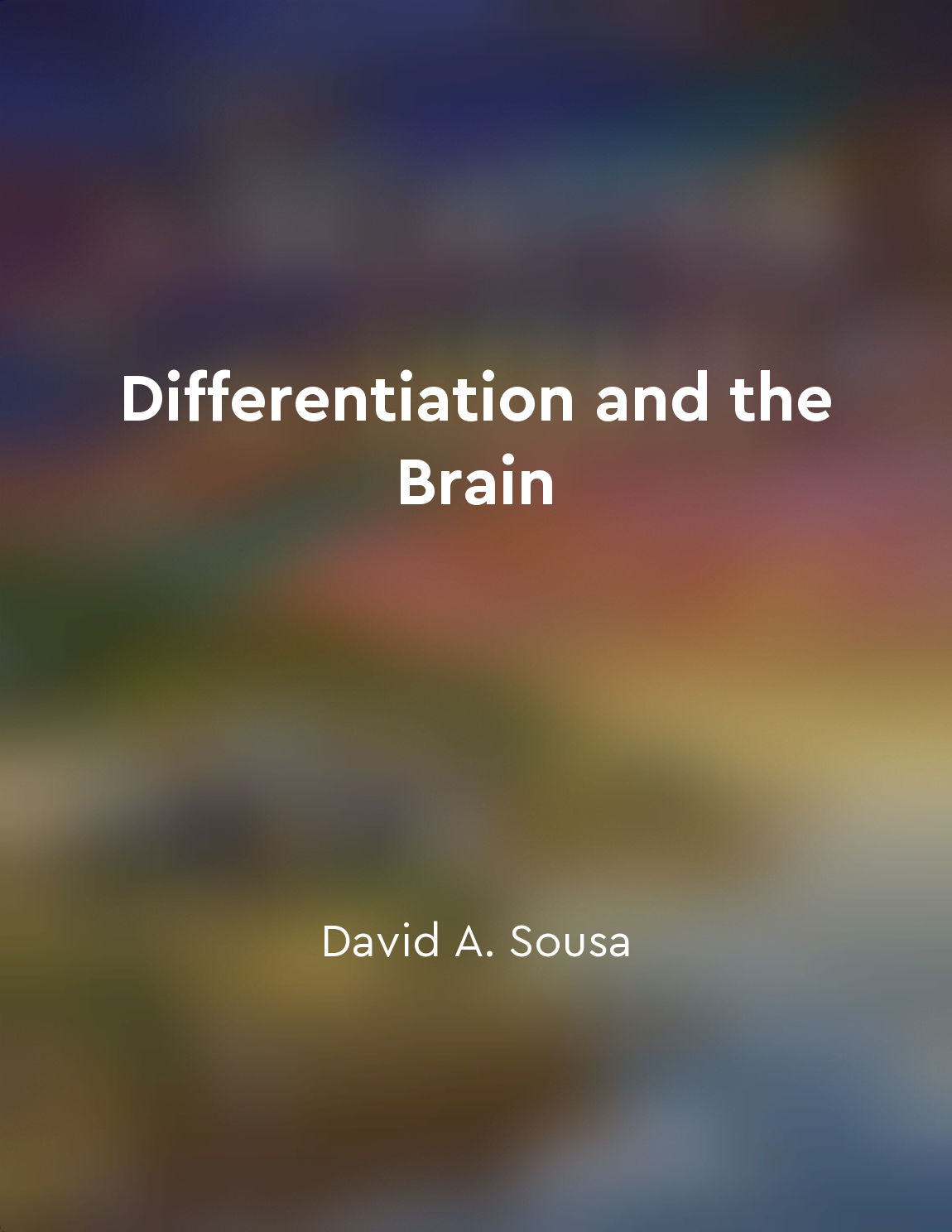Differentiation promotes student ownership of learning from "summary" of Differentiation and the Brain by David A. Sousa,Carol A. Tomlinson
The concept of differentiation leading to student ownership of learning is rooted in the recognition that each learner is unique in how they process information and demonstrate understanding. By tailoring instruction to meet individual needs, educators can foster a sense of ownership in students over their own learning journey. When students feel that their needs and interests are being considered in the classroom, they are more likely to engage with the material and take responsibility for their learning. Differentiation allows students to work at their own pace and in ways that make sense to them personally. This level of autonomy can empower students to take control of their learning and become more invested in the educational process. When learners are given the freedom to choose how they explore and master content, they are more likely to see themselves as active participants in their own learning rather than passive recipients of information. Furthermore, differentiation can help students develop a deeper understanding of the material by allowing them to approach it from multiple angles and in various formats. This variety in instruction not only accommodates different learning styles but also encourages students to take ownership of their learning by choosing the methods that work best for them. As a result, students become more self-aware of their strengths and areas for growth, leading to a more personalized and meaningful learning experience.- Educators can create a classroom environment where learners feel empowered, motivated, and engaged. When students have a say in how they learn and demonstrate their understanding, they are more likely to take ownership of their academic growth and ultimately become lifelong learners. The connection between differentiation and student ownership underscores the importance of individualized instruction in supporting the diverse needs and abilities of all learners.


